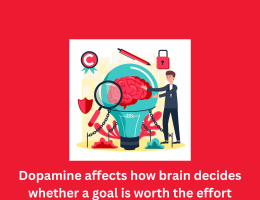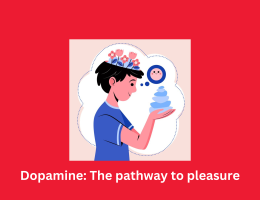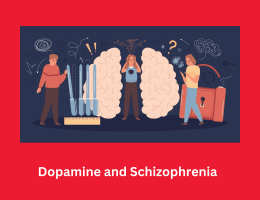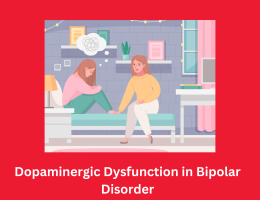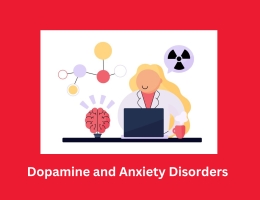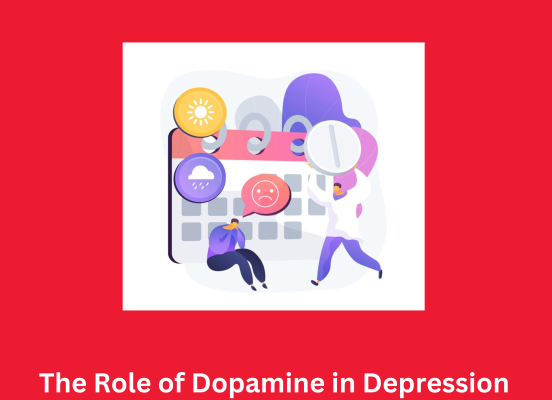
The Role of Dopamine in Depression: Mechanisms and Treatment Implications
- By admin --
- Wednesday, 13 Mar, 2024
Introduction:
Depression is a complex mental health condition that significantly affects daily functioning and causes much suffering in millions of people globally. Even while the precise neurobiological processes causing depression are still not fully known, dopamine is becoming more and more involved in the pathophysiology of the disorder. In this essay, we explore how despair and dopamine are related; in other words we explain the compositionality of it though elaborate discussion for ideas concerning treatment possibilities.
Dopamine Function and Regulation:
Neurotransmitter dopamine is vital for several mind methods, together with motivation, reward processing, mood manage, and cognitive characteristic. The substantia nigra and ventral tegmental area are of the mind regions in which it's miles synthesised. It operates thru a complicated community of receptors, which include D1-like and D2-like receptors.
Dopamine neurotransmission has been shown to shift in depression, while it's still unclear exactly what these changes entail. Whereas some studies suggest irregularities in dopamine receptor sensitivity or signaling pathways, albeit others suggest depressed ranges of dopamine in sure mind areas that play a role in melancholy: the limbic gadget and prefrontal cortex.
Dopamine and Reward Processing:
The praise deficit principle is among the most popular of all the Dopamine hypotheses in the aspect of depression. This principle claims that people suffering from depression find it difficult to appreciate good things and instead, experience anhedonia or sometimes reduced power. Dopamine mediates the feel of satisfaction and reinforces profitable behaviours, and it is a key participant inside the brain's reward machine.
The reward circuitry of human beings with despair has been located to be altered through studies the use of neuroimaging strategies. This includes decreased hobby in dopaminergic circuits at some point of praise anticipation and consumption. These findings suggest that impaired dopamine signals may be responsible for the lack of pleasure associated with depression.
Stress, Dopamine, and Depression:
Prolonged stress is a significant risk factor for depression development, and mounting data points to dopamine neurotransmission alterations brought on by stress as the possible pathophysiology of the illness. Stressful events have the potential to disillusioned the sensitive dopamine signalling stability, which can trade mood regulation and growth susceptibility to depression signs and symptoms.
Research on animals has shown that long-term exposure to stressors can alter the structure and function of dopaminergic neurons. This can lead to maladaptive reactions to future stressors and a heightened vulnerability to depressive-like behaviours. These findings have significance for comprehending the processes of stress-related mental diseases as they emphasise the complex interactions among stress, dopamine, and depression.
Implications for Treatment:
Dopamine's function in despair has critical ramifications for the advent of modern therapeutic strategies that focus on dopaminergic pathways. The monoaminergic structures, which embody serotonin and norepinephrine, are the principle targets of traditional antidepressants, along with selective serotonin reuptake inhibitors (SSRIs) and serotonin-norepinephrine reuptake inhibitors (SNRIs). But now not each depressed man or woman may benefit similarly from those tablets due to dopamine dysregulation in sure cases.
Recent advances within the control of depression propose that there can be capability for remedy by way of focused on dopamine neurotransmission. For folks that don't react well to conventional antidepressants, materials that boom dopamine release or receptor activation, inclusive of dopamine agonists or partial agonists, are being researched as feasible augmentation therapy.
Furthermore, non-pharmacological treatments that target faulty reward processing and negative cognitive biases linked to depression, such as cognitive-behavioral therapy (CBT) and behavioural activation, may indirectly regulate dopamine function. These techniques emphasize the need to deal with man or woman mental further to organic ailments.
Conclusion:
In summary, dopamine affects a variety of depression components, including praise processing, stress responses, and anger management. The aetiology of melancholy has been connected to dysregulation of dopamine neurotransmission, which gives insights into functionality recuperation strategies that concentrate on dopaminergic circuits. Further research needs to be done to explain exactly how dopamine dysfunction happens in depression if one is to successfully restore dopaminergic homeostasis and alleviate symptoms of depression. Our knowledge of dopamine's function in depression will help to improve the creation of more focused and effective therapies for this crippling mental illness.

